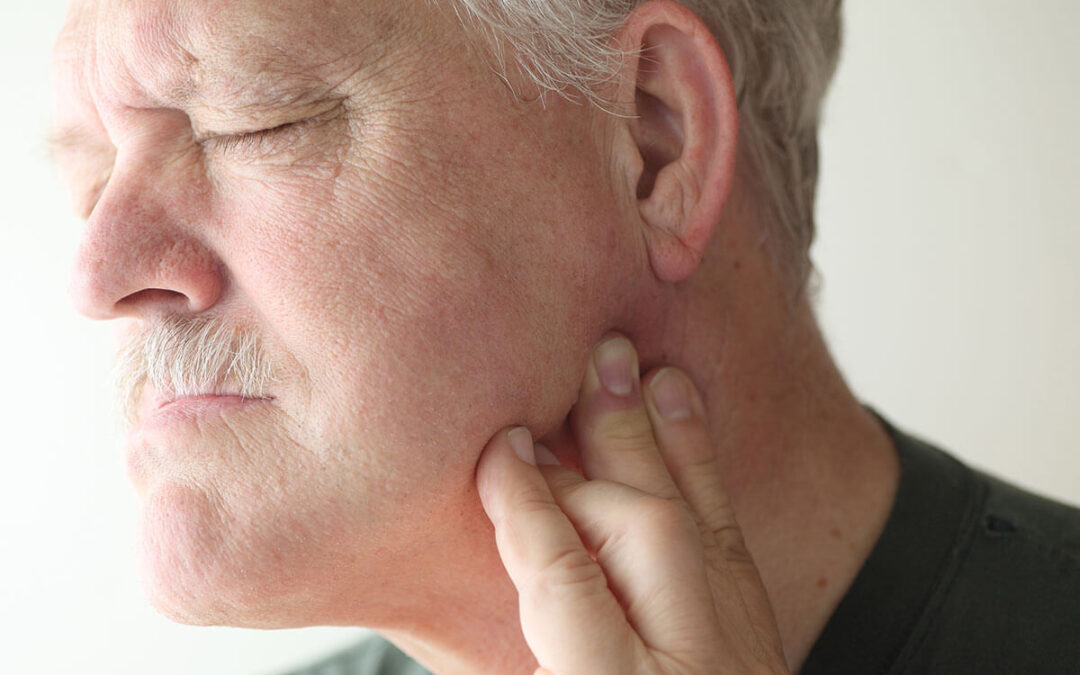Are you experiencing pain or discomfort in your jaw? It could be a sign of TMJ disorders. TMJ, or temporomandibular joint, is the joint that connects your jawbone to your skull. When this joint becomes inflamed or damaged, it can lead to a range of uncomfortable symptoms. But fear not! In this blog post, we will explore the various home remedies, medical treatments, and even surgery options available to help alleviate TMJ disorders. So sit back, relax, and let’s dive into the world of TMJ solutions together!
What is TMJ?
The temporomandibular joint, or TMJ for short, is a hinge-like joint that connects your jawbone to the skull. It allows you to move your jaw up and down, side-to-side, and enables you to chew, speak, and yawn. This complex joint is made up of muscles, ligaments, bones, and cartilage.
When something goes awry with the TMJ, it can lead to a range of issues known as TMJ disorders. These disorders can cause pain and discomfort in the jaw area as well as other related symptoms such as headaches, earaches, difficulty chewing or opening your mouth fully.
TMJ disorders can be caused by various factors including trauma to the jaw joint or surrounding structures. Arthritis in the joint or misalignment of the teeth can also contribute to these conditions. Stress-induced teeth grinding (bruxism) has been linked to TMJ disorders too.
It’s essential to recognize the signs and symptoms of TMJ early on so that prompt treatment can be sought. If you suspect you may have a TMJ disorder, it’s recommended that you consult with a healthcare professional who specializes in treating these conditions. They will evaluate your symptoms thoroughly before recommending appropriate treatment options tailored specifically for you.
Symptoms of TMJ
When it comes to TMJ disorders, understanding the symptoms is crucial for early detection and treatment. While the signs can vary from person to person, there are some common symptoms that may indicate a problem with your temporomandibular joint.
One of the most prevalent symptoms is facial pain or tenderness, particularly in the jaw area also TMJ disorders can affect your neck. This can range from mild discomfort to severe pain that hinders everyday activities like eating and speaking. Another symptom is difficulty opening or closing your mouth fully, often accompanied by a clicking or popping sound when you move your jaw.
Headaches are another common complaint among individuals with TMJ disorders. These headaches can be dull and persistent or sharp and sudden in nature. Additionally, earaches and ringing in the ears (tinnitus) may occur due to the close proximity of the temporomandibular joint to these areas.
Some people experience muscle stiffness around their jaw joints, making it challenging to chew food properly or even speak without discomfort. Others may notice their teeth not fitting together correctly or suddenly feeling misaligned.
If you’re experiencing any of these symptoms on a regular basis, it’s essential to consult a healthcare professional for an accurate diagnosis and appropriate treatment plan tailored specifically for you.
Home Remedies for TMJ
Dealing with the discomfort and pain of TMJ disorders can be challenging, but there are several home remedies that may help alleviate symptoms. While these remedies may not cure the underlying condition, they can provide some relief and improve your overall well-being.
One simple yet effective home remedy is practicing relaxation techniques. Stress has been known to exacerbate TMJ symptoms, so finding ways to relax and reduce stress levels can be beneficial. Try activities like deep breathing exercises, meditation, or yoga to promote relaxation and ease tension in your jaw muscles.
Applying heat or cold packs to the affected area is another common home remedy for TMJ pain. Cold packs can help reduce inflammation and numb the area, while heat packs can soothe sore muscles and increase blood flow. Experiment with both methods to see which provides you with more relief.
Dietary changes may also play a role in managing TMJ symptoms. Avoiding hard or chewy foods that put excessive strain on your jaw joint can help prevent further irritation. Opt for softer options like soups, smoothies, or mashed vegetables instead.
Additionally, incorporating gentle jaw exercises into your daily routine might help relieve stiffness and improve mobility in the joint. Simple movements such as opening and closing your mouth slowly or gently massaging the jaw muscles with your fingers can offer some respite from discomfort.
It’s important to note that these home remedies should supplement professional treatment rather than replace it entirely. If you’re experiencing persistent or severe symptoms of TMJ disorder, it’s crucial to consult a healthcare provider for proper diagnosis and guidance tailored specifically to your needs.
Remember that every individual is unique; what works for one person might not work for another when it comes to managing TMJ disorders at home. It may require some trial-and-error until you find what brings you relief.
Medical Treatments for TMJ
Medical treatments for TMJ disorders can vary depending on the severity of the condition and the individual’s specific symptoms. In some cases, self-care measures and home remedies may be enough to alleviate pain and discomfort associated with TMJ. However, if these conservative methods do not provide relief or if the condition worsens, medical intervention may be necessary.
One common medical treatment for TMJ is medication. Nonsteroidal anti-inflammatory drugs (NSAIDs) such as ibuprofen or naproxen sodium can help reduce inflammation and relieve pain in the jaw joint. Muscle relaxants may also be prescribed to help relax tense muscles in the jaw.
Physical therapy is another option for managing TMJ disorders. This can involve exercises to strengthen and stretch the jaw muscles, as well as techniques to improve posture and reduce stress on the joint.
In more severe cases of TMJ, injections of corticosteroids into the affected joint may be recommended to reduce inflammation and relieve pain. These injections are typically performed by a healthcare professional experienced in treating temporomandibular joint disorders.
If conservative measures fail to provide relief or if there are structural issues causing TMJ symptoms, surgery may be considered as a last resort. Surgical options range from minimally invasive procedures such as arthrocentesis or arthroscopy to more extensive surgeries like open-joint surgery or total joint replacement.
It is important to note that each case of TMJ disorder is unique, so it is essential to consult with a healthcare professional who specializes in temporomandibular joint disorders to determine which treatment approach would be most appropriate for your specific situation.
Surgery for TMJ
Surgery for TMJ disorders is typically considered a last resort when other treatment options have been exhausted. It is important to note that not all cases of TMJ require surgery, and it should only be pursued if conservative treatments have failed to provide relief.
One surgical option for TMJ disorders is arthroscopy, which involves inserting a small camera into the joint to assess and treat any damage. This minimally invasive procedure allows the surgeon to clean out debris, repair or remove damaged tissue, and improve joint function.
In more severe cases or when structural issues are present, open-joint surgery may be necessary. This procedure involves making an incision near the jaw joint to access and repair any abnormalities or damage directly.
While surgery can offer significant relief for some individuals with TMJ disorders, it does come with risks and potential complications. Therefore, it is essential to thoroughly discuss the benefits and drawbacks of surgery with your healthcare provider before making a decision.
Remember that each case of TMJ disorder is unique, so what works for one person may not work for another. It’s crucial to consult with a qualified healthcare professional who specializes in treating TMJ disorders to determine the most appropriate course of action.
How to Prevent TMJ
TMJ disorders can be painful and disruptive, but the good news is that there are steps you can take to prevent or minimize their occurrence. Here are some tips on how to prevent TMJ:
1. Practice good posture: Maintaining proper posture can help alleviate strain on your jaw muscles and joints. Be mindful of your head, neck, and shoulder alignment throughout the day.
2. Avoid excessive chewing: Chewing gum or biting down on hard foods like ice or tough meats can put stress on your jaw joints. Opt for softer foods and cut them into smaller pieces if needed.
3. Manage stress: Stress has been linked to increased muscle tension in the face and jaw area, which can contribute to TMJ problems. Find healthy ways to manage stress such as exercise, relaxation techniques, or talking with a therapist.
4. Use caution when yawning or laughing: Yawning widely or laughing excessively can cause your jaw joints to move out of alignment temporarily. Try supporting your jaw with your hand when yawning or laugh softly instead of loudly.
5. Avoid clenching and grinding teeth: If you have a habit of clenching or grinding your teeth (bruxism), talk to your dentist about getting a mouthguard to wear at night.
Get regular dental check-ups : Regular visits to the dentist not only ensure optimal oral health but also allow for early detection and treatment of any potential issues relatedto TMJ disorders .
By following these preventive measures, you may be able to reduce the frequency and severity of TMJ symptoms.
Conclusion
TMJ disorders can cause significant discomfort and affect various aspects of your life, from eating to speaking. However, with the right approach, you can manage and alleviate the symptoms associated with TMJ.
Home remedies such as applying warm compresses or practicing relaxation techniques can provide temporary relief. Additionally, over-the-counter pain medications can help reduce inflammation and pain.
For more severe cases, medical treatments may be necessary. Your healthcare provider may recommend options like physical therapy or the use of oral splints or mouth guards to align your jaw properly.
In some instances where non-surgical methods are not effective, surgery might be considered. Surgical procedures for TMJ disorders include arthroscopy or open-joint surgery to repair damaged joints or reposition discs.
Preventing TMJ is possible by adopting healthy habits such as maintaining good posture, avoiding excessive chewing gum or nail-biting, and managing stress levels through relaxation techniques.
If you have missing teeth that contribute to your TMJ disorder symptoms, it’s important to consider replacing them as there are many benefits of replacing your teeth. Dental implants offer numerous benefits in improving your bite alignment and reducing strain on the temporomandibular joint.
Remember that every case of TMJ disorder is unique, so it’s crucial to consult with a healthcare professional for an accurate diagnosis and personalized treatment plan. By working closely with your doctor and following their recommendations along with these home remedies and preventive measures, you can effectively manage TMJ disorders and improve your quality of life.














